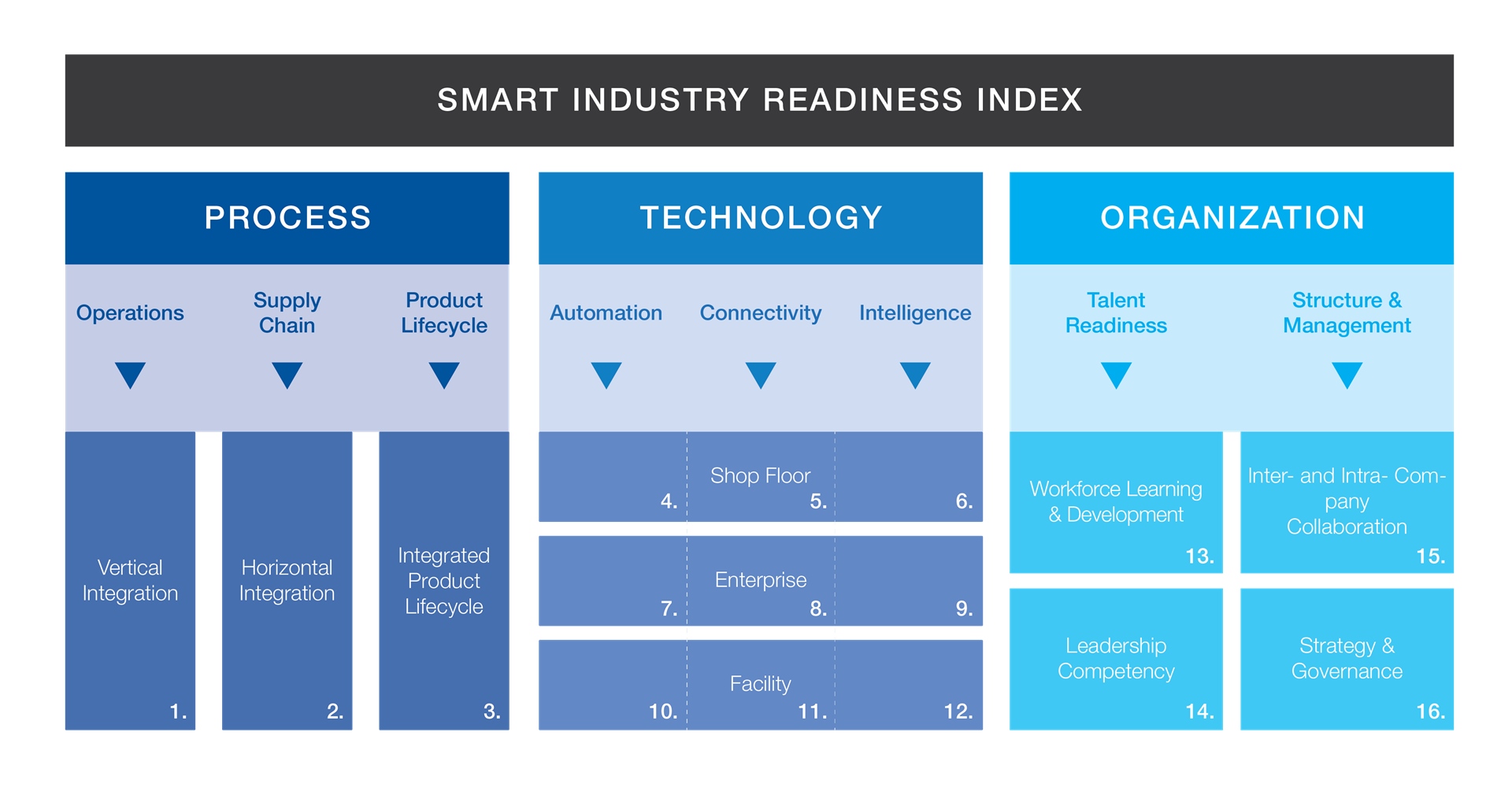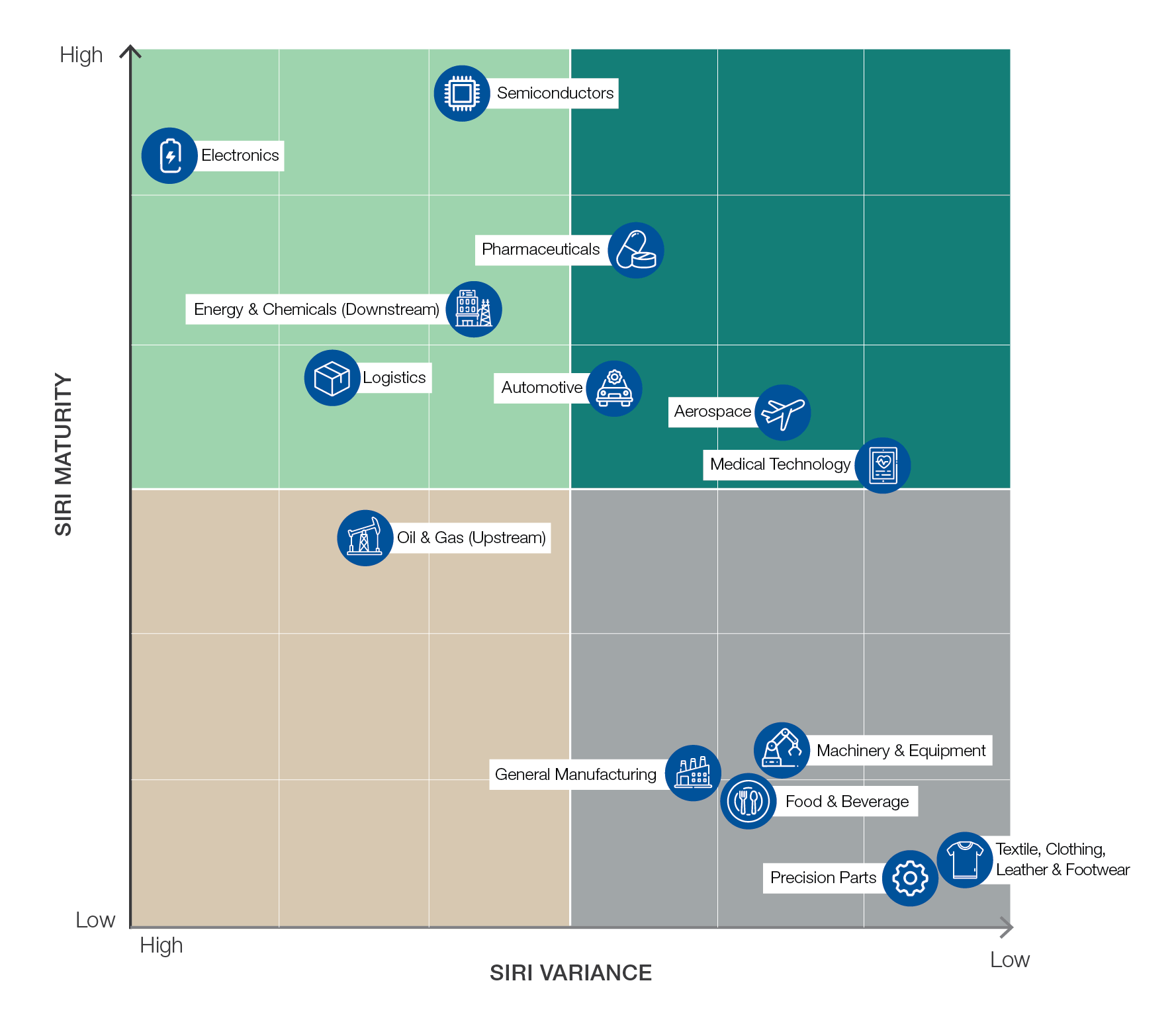Technologies such as big data and additive manufacturing are catalysing the convergence of physical and digital worlds in various industrial sectors including logistics, production, and utilities. There is a greater need than ever to digitalise manufacturing assets and increase technology adoption to remain competitive and continue growth trajectories. This convergence is otherwise known as Industry 4.0, a revolution that is altering the nature of manufacturing. With Industry 4.0, dense and interconnected networks of suppliers, facilities and clients will be created, enabling both humans and machines to work together to manage global supply chains and smart facilities in a flexible and efficient manner.
Accelerating adoption of Industry 4.0
For organisations worldwide, Industry 4.0 offers an invaluable opportunity to develop new competitive advantages through increased productivity, agility, and speed. In essence, Industry 4.0 represents a paradigm shift for manufacturers on numerous fronts.
- Machines and devices are now part of intelligent and autonomous networks capable of communicating with one another.
- Processes are adaptive, self-corrective and respond to demands in real-time.
- Flexible production is made possible by decentralised intelligence and decision-making.
- Manufacturing systems are vertically integrated with enterprise processes and horizontally networked across the value chain to enable organisations to respond to clients’ needs with greater flexibility, speed, and efficiency.
However, while many organisations recognise the opportunities and potential of Industry 4.0, there is a high level of diversity in the pace of adoption across industries and within industrial sectors, with one of the most prominent challenges being not knowing where and how to start.
According to McKinsey’s 2017 digital manufacturing global expert survey, the lack of clear visions, strategies, and systematic roadmaps were among the greatest challenges that hindered organisations in adopting Industry 4.0.
SIRI for manufacturers
To address the challenges that organisations face, the Smart Industry Readiness Index (SIRI) was developed. Created in Singapore, in partnership with a network of leading technology companies, consultancy firms, industry, and academic experts, SIRI is the first international programme designed for Industry 4.0 benchmarking and transformation.
Endorsed by the World Economic Forum (WEF) and managed by the International Centre for Industrial Transformation (INCIT), the SIRI framework provides organsiations worldwide, regardless of size and industry, with an objective, non-biased review of their production facilities.

The Smart Industry Readiness Index framework
Source: The World Economic Forum. The Global Smart Industry Readiness Index Initiative: Manufacturing Transformation Insights Report 2022
The SIRI framework comprises three layers:
- The first layer identifies three fundamental building blocks of Industry 4.0: Process, Technology, and Organisation.
- The second layer breaks down these three building blocks into eight pillars that represent important aspects that organisations must focus on to future-proof their businesses.
- The third layer comprises of 16 dimensions that can be used to evaluate the current Industry 4.0 readiness of manufacturing facilities.
Read more on the different layers of the SIRI framework in the Global Smart Industry Readiness Index Initiative: Manufacturing Transformation Insights Report 2022 by the World Economic Forum.

The archetypes of transformation map featuring the 14 industry groups
Source: The World Economic Forum. The Global Smart Industry Readiness Index Initiative: Manufacturing Transformation Insights Report 2022
How organisations have benefitted from SIRI
Organisations that have undergone the SIRI assessment have reported a more in-depth understanding of the maturity profile of their production facilities and key areas to focus on.
“The SIRI assessment has not only provided us with a structured and comprehensive framework to evaluate the effectiveness of our ongoing digital transformation initiatives, but also guided us to think systematically about our future transformation strategies. This ensures that we are able to consistently and holistically digitalise manufacturing facilities and unlock the vast potential of new technologies.”
- Mr Lim Hock Heng, Site Director, GSK
Futhermore, a global industrial technology company was able to strengthen integration between production and supply chain processes to enable better communication between different technology layers; while another world-leading appliances and electronics manufacturer successfully evaluated if their ongoing efforts had enabled their facilities to be more advanced than their competitors, and was able to easily identify blind spots and missed opportunities.
Today, SIRI has not only enabled organisations to transform a single production site, but also execute group-wide strategies at an organisational level and across different manufacturing sectors.
Where to next?
As the world advances towards Industry 4.0, now is the time to consider embracing new and emerging technologies to remain competitive, while also developing a tactical transformation roadmap to reap the full benefits of digital transformation.
We've worked with clients across Singapore, New Zealand and Australia to implement the SIRI framework, guiding them through the different layers, and supporting them with an evaluation of their digital maturity to derive actionable insights and recommendations. Email us at marketing-sg@beca.com to receive a sample SIRI assessment report and find out more on how you can kickstart your digital transformation journey.
 New Zealand
New Zealand
 Australia
Australia
 Singapore
Singapore